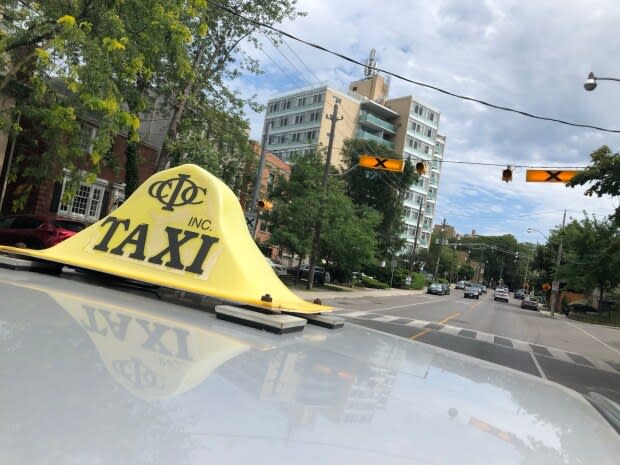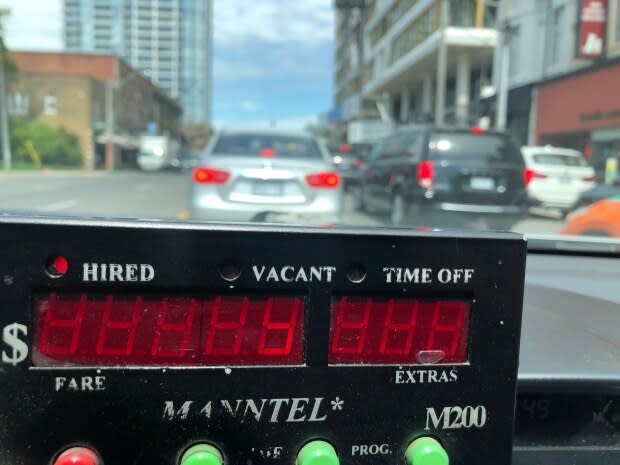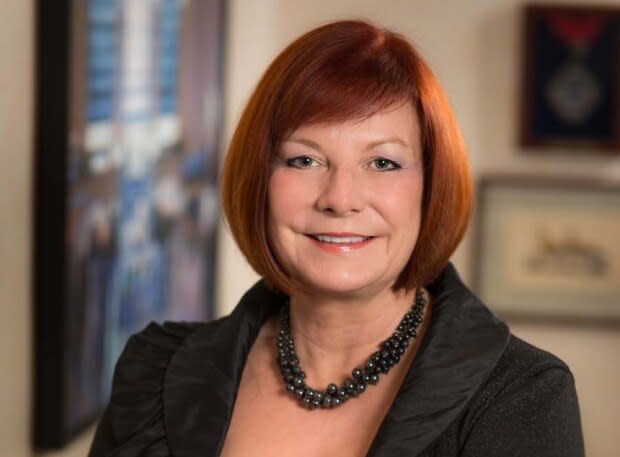Huge insurance premium hikes 'another nail in the coffin for us,' Toronto taxi drivers warn
Some Toronto taxi drivers are considering parking their cabs for good after getting hit with insurance premium hikes they say they can't afford.
Thomas Tuah, 75, has been driving taxis since 1973, but over the past few years he says he's found it more and more difficult to make a living.
"Not anymore. But I'm stuck in it. Have nowhere to go. Who is going to employ me at my age?" Tuah said.
His expenses, which include licensing fees, permits, equipment required by the city and car maintenance, all eat away at what he takes home at the end of the day.
"I maybe make about $80 a day," he said. "I have a family. I have a home to pay for."
Now, he's been given notice that his commercial vehicle insurance fees are going up by $3,000.

"Maybe I'll make more money collecting welfare than even driving a taxi," Tuah told CBC Toronto, saying the steep hikes have him thinking he should quit.
And he certainly isn't alone.
Gary Khan says he got a notice indicating his renewal would cost $7,411 just for liability and will shoot up to almost $12,000 for comprehensive or all-perils coverage.
"I was paying like $5,200 for all perils. How will I pay this? So many guys are thinking of giving up their plates," he said, adding he's been driving taxis for 45 years and doesn't have any recent claims, tickets or fines.
Khan says huge premium hikes put cabbies at a big disadvantage as they compete with drivers for companies like Uber and Lyft, who are covered by the companies' insurance policies when they are picking up fares using the ride hailing apps.

Khan says it's unfair that commercial insurance is another expense that ride sharing drivers who just download an app don't have to pay.
"Go for courses, pay the $700 and go for courses. Pay everything and be just like me. I don't care if there are 100,000 Uber drivers. We want accountability and we want them to be in the same playing field as we are in," he said.
In a written statement, City of Toronto spokesperson Lyne Kyle says there have been no changes to the city's insurance requirements for Vehicle-for-Hire drivers that may have led to the drastic spike in costs.
She says the Insurance requirements remain the same for taxicabs, limousines and private transportation companies — all are required to have $2 million in coverage.
Philomena Comerford, president and chief executive officer of Baird MacGregor Insurance Brokers LP, says insurance companies have no alternative but to raise premiums on cab drivers. due to a high number of claims this year and rising costs.
"Taxis have always been a difficult class of business," she said in an interview.
"They would be considered high risk. And unfortunately, because they're driving in downtown conditions and a lot of congestion, there are a lot of accidents involving pedestrians and cyclists," she added.
On top of being the highest risk and most expensive to insure, she says taxis are bearing the brunt of what Ontario auto insurers are calling a very challenging year, due to a high number of claims and rising costs.

"Results have not been good in Ontario auto and when results in Ontario auto are bad, it's like they sneeze and everybody else gets a cold," said Comerford, adding rate hikes have also hit tow truck operators.
"So we've got kind of a perfect storm going on right now in the industry."
Sam Moini, of HPM Taxi Ltd, operates about 30 cabs and is a spokesman for the Toronto Taxi Alliance. He is worried about what the increase in insurance costs will do to the industry.

"The taxi industry has suffered a significant amount in the last five years. And insurance is right now is their biggest expense," he said. "So it's another nail in the coffin for us.
Moini echoes Khan's concerns about drivers for ride sharing apps who are not required to purchase any supplementary insurance, but are still allowed to take paying passengers.
"Why do we have to pay $10,000 premiums when they get off scot-free. The playing field is completely unbalanced."


